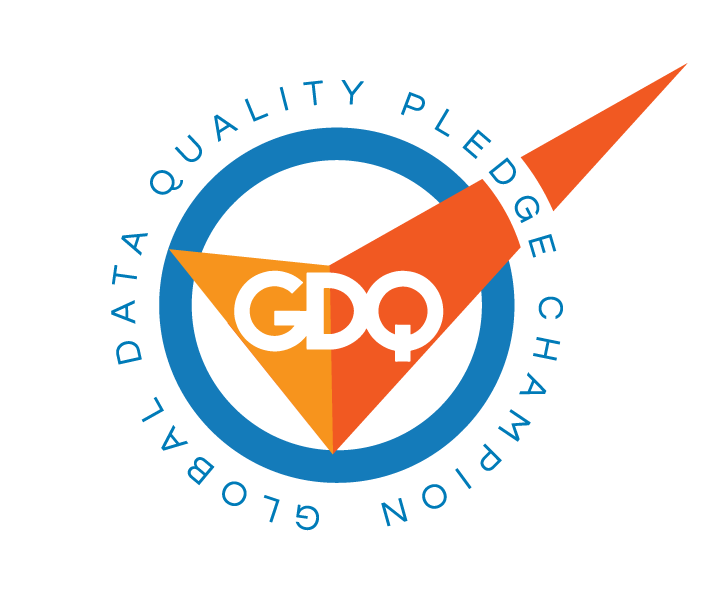A moment for mental health: Q&A with Melissa Doman
May is Mental Health Awareness Month. While mental health should be a topic of ongoing focus, we wanted to take this opportunity to speak to Inlightened expert, organizational psychologist, former clinical mental health therapist, and author of “Yes, You Can Talk About Mental Health at Work (Here’s Why And How To Do It Really Well)”, Melissa Doman, MA, to get her thoughts on a few key questions.
The conversation around mental health has come a long way, but there’s still a ways to go in terms of putting concepts to work and fostering meaningful change. Where are you seeing efforts fall flat?

I’ve noticed that there has been loads of progress around destigmatizing conversations about mental health and mental illness. Making people feel psychologically safe to discuss these topics, educating or rather re-educating people on what those concepts actually are. But where I think awareness campaigns fall short — and where I tend to focus on more in my work — is actually equipping people with the conversational skills and the approaches to have those conversations. The chief complaint that I hear from all the businesses who end up becoming my clients is, “We know it’s good to talk about it and we want to, but we don’t want to screw it up.” I tend to think that the shortcoming is centered around not focusing on developing the skills. I am focusing on that and beating that drum to anyone who will hear me.
What are simple actions or steps leaders can take to prioritize mental health in organizational culture and the workplace?
I would actually start before that because getting an entire company to talk about mental health at work in a constructive way is a very slow burn and it takes time. Sometimes some leaders might be very open to the idea of discussing this topic, but other leaders or the organization as a whole may not. It’s about trying to find areas where you can make an impact, even if it’s just within your own team. Oftentimes, people look to leaders for permission or unspoken rules of what they can and can’t talk about. Generally speaking, that’s what humans do. They look to leaders for permission, regardless of where they come from, or even if they have a generally rebellious spirit. But when it comes to fostering those conversations, leaders can’t just tell other people to have them. They have to be somewhat willing to also participate in those conversations. Or maybe share something that’s going on with themselves — humanize themselves as leaders — because people are more likely to open up about that stuff if they see their leaders are as well. Leaders need to decide if they feel comfortable doing that and if they don’t. Why? And if they want to talk to their team about mental health, how do they want to do that? What are they trying to achieve? What is the intended outcome that they’re going for?

I think it’s about being very clear with your statement of intention, with your team, about why are you even bringing this up. It’s hopefully not just to check the box. What are you looking to have happen? This also means taking on feedback from people. And that doesn’t mean you can be everything to everybody and make everybody happy for how you have these conversations. But having more heads together is better than one, in terms of trying to figure it out. What do constructive, healthy conversations around mental health look like in our team? Whether it’s in a group setting, whether it’s in a one-on-one setting. Usually, if you’re starting with the leaders it’s How do I want to participate in these conversations? What do I want the outcomes to be if the larger organizational culture is fighting against this? Then how can I make sure my team knows that regardless of that, I care about these conversations as their leader?
If you’re looking to make a larger strategic change, it’s about making sure to understand who are the influencers, and who are the decision-makers. Who do you need buy-in from? To get this message elevated at an organizational level and do it in a way that actually seems purposeful instead of just during Mental Health Awareness Month or World Mental Health Day. And some companies like to start with one event and see how it goes. There are some that will invest in doing a mini-series where they’re training every single person in their company on how to have these conversations. Companies tend to hire me for stuff like that. Or if they’re going the whole nine yards, and they are creating a workplace mental health curriculum alongside their professional development curriculums that evolve year on year over time, as and when required.
Having seen the ins and outs of various organizations, what anecdotes and myths would you like to debunk regarding mental health in the workplace?
Mental health in the workplace needs to stop being positioned as the sunshine and rainbows, positivity-only thing. Despite the very positive-sounding name, mental health is a spectrum of emotions, spanning positive, neutral, and negative. There are dozens of emotions we are pre-programmed with evolutionarily to let us know how to respond to the stimuli in our environment if something is wrong, or if we need help from others. Oftentimes organizations will go about mental health at work campaigns with a layer of unintentional toxic positivity. Bring your best self to work, creating a positive culture of mental health, and all the other synonyms of that that unintentionally make people feel like if you don’t come to this conversation with positivity only, you’re coming with negativity that requires us to apply a fixer mentality onto it. There’s a lot of very unintentional emotional sterilization in these sorts of initiatives, and it doesn’t accomplish anything. It seems performative. It makes people roll their eyes and say, “What is this nonsense? This isn’t real life.” I think that it’s not just about having this positive layer. What’s more constructive is approaching mental health in a realistic way, and all the shades that come with it.
 Another one is every chronologically-aged adult in a business (notice I didn’t say mentally aged I said chronologically aged because those are not the same) is responsible, to some degree, to learn how to have these sorts of conversations if they want to have them and they can’t just say, “Oh, it’s the leader’s responsibility. It’s the company’s responsibility.” No, it’s everybody’s responsibility. The company can create a culture. The leaders can create psychological safety, but each person needs to be individually accountable for how they speak up about their own mental health or how they impact others if they’re trying to influence them. So it starts from the top and it starts with leaders. Yes, that’s true. But everybody has to do their part.
Another one is every chronologically-aged adult in a business (notice I didn’t say mentally aged I said chronologically aged because those are not the same) is responsible, to some degree, to learn how to have these sorts of conversations if they want to have them and they can’t just say, “Oh, it’s the leader’s responsibility. It’s the company’s responsibility.” No, it’s everybody’s responsibility. The company can create a culture. The leaders can create psychological safety, but each person needs to be individually accountable for how they speak up about their own mental health or how they impact others if they’re trying to influence them. So it starts from the top and it starts with leaders. Yes, that’s true. But everybody has to do their part.
How can employees establish and model healthy habits, regardless of workplace buy-in?
I think people need to decide what that looks like for them. For some people, it can be subtle things like not hiding on their calendar that they’re going to therapy. Or if they are modeling the healthy behavior of just being honest about how they’re feeling. And that’s really difficult for people because when we ask how we’re doing, it tends to be very performative. No one’s expecting a different response. Modeling healthy behavior is just being honest about how you’re doing, and that’s not the expectation for comfort or someone to fix it, but it shows that it’s healthy and mature just to be real. I would say that another behavior is not feeling like you have to be ashamed or fearful to share if you’ve gone to therapy or you sought out some form of mental health support, like calling the employee assistance program, going to see a doctor, or whatever it is. The brain is an organ like any other organ in the body, so talking about actively seeking services to help that organ should be positioned as a healthy, mature, adult, self-aware behavior. There’s a lot to say, but those are kind of my top three.
What about those in a more junior role? Those who are less comfortable speaking up, or perhaps don’t feel as supported? Would there be different approaches you would suggest, depending on different levels within an organization?
I would say there are a lot of considerations that go into that. There are so many different factors that influence how people feel about doing that in the workplace and modeling those behaviors based on the culture that they grew up in, the religion that they might observe, their gender, and their identity as their family raised them. There are lots of things that go into how they feel about doing that, regardless of job title.
 Also, the time that you were born. So there are a lot of differences in intergenerational discussions about mental health and what “appropriate” looks like in the workplace. There are five generations currently in the workplace. That’s a lot of different opinions. I get feedback that a lot of the younger generations are being much more vocal about this, and some of the older generations are going “Well this feels like it’s going too far.”but that’s all really subjective, and you can’t generalize entire generations. All you can do is give themes.
Also, the time that you were born. So there are a lot of differences in intergenerational discussions about mental health and what “appropriate” looks like in the workplace. There are five generations currently in the workplace. That’s a lot of different opinions. I get feedback that a lot of the younger generations are being much more vocal about this, and some of the older generations are going “Well this feels like it’s going too far.”but that’s all really subjective, and you can’t generalize entire generations. All you can do is give themes.
There are many folks in older generations who feel that this is not something that should be modeled in the workplace because it’s inappropriate, and it’s a personal thing. Whereas a lot of the folks in the younger generations who are raised with social permission, access to the nomenclature, and more resources around mental health have the expectation that they should be able to model those behaviors, regardless of how junior they are.
There is not a cut-and-dry answer to that because actually what it really comes down to regardless of your position or seniority, is if you’re trying to model those healthy behaviors, and people discourage you, then what? The statement to start with is “Talking about and managing my mental health is a healthy adult practice and I’d like to know why you don’t agree.” That’s it.
There’s a difference between modeling those behaviors in moderation, because let’s be honest, you also have a job to do. Versus attention-seeking behavior around mental health, which is not great and makes people around you resentful. So it’s very individually dependent.
How can we all help sustain the focus on embracing and supporting mental health, beyond an awareness month?
We carry things with us every single day of the year. The mental health conversation is not static. It’s very dynamic. It’s always evolving as the world and the world of work are, so the conversations that we need to have also need to evolve. There are lots of companies who think that if they educate people on what mental health and illness are, and say, feel safe to talk about them then they’ve done their job but actually, there are dozens of subtopics about mental health in the workplace that are not explored. Having a continuous, educational, long-term map to go over what these things are, makes sure that people have the critical education they need to apply it. I don’t see any reason that they shouldn’t slot into any sort of professional development track.
The way to keep it going consistently is to really nest it under training and development, not an optional wellness endeavor. When it’s an optional wellness endeavor that gets attention maybe a couple of times a year, no one’s going to take it seriously as a skill development initiative if it’s not treated and positioned as such.
Is there anything else you would like to share before we end?
What I really want to include is that talking about mental health in the workplace is an uphill battle in healthcare. Especially for healthcare providers, because they’re so used to talking about it to the populations they serve. That feeling like they have permission to talk about it amongst their colleagues is not where it should be. There is a lot of progress that’s being made. I have lots of healthcare clients. But when you work in an industry where the stakes are so high, if you make a mistake, if you have to carry a license to provide clinical services, the feelings of permission to have these conversations dramatically decrease. I’m fairly certain, based on what I’ve heard from current HCPs, that for the American Medical Association or the licensing boards, that if you seek out behavioral or psychiatric care, those boards find out about it and that information can be potentially used against you for ‘fitness to practice’. That’s incorrigible; you don’t want healthcare professionals to get access to behavioral healthcare, to help their mental health so they can do their job better? That makes no sense.
It is completely critical to make healthcare professionals feel like they can and should have these conversations. Unfortunately, the governing bodies that govern healthcare haven’t really caught up yet, so this conversation still has a long way to go. Just because you have it with the patients you serve doesn’t preclude you from having it amongst your colleagues. If anything, it’s even more of a reason that you should.
Learn more about Melissa and her work.

Melissa Doman, MA, is an organizational psychologist, former clinical mental health therapist, and author of Yes, You Can Talk About Mental Health at Work (Here’s Why And How To Do It Really Well). Melissa works with companies across industries around the globe – including clients like Google, Dow Jones, Microsoft, Salesforce, Siemens, Estée Lauder, & Janssen. She’s been featured as a subject matter expert in Vogue, the BBC, CNBC, Inc., and in LinkedIn’s 2022 Top 10 Voices on Mental Health. Having lived abroad in South Korea, England, and Australia and traveled to 45+ countries, Melissa calls upon her global experiences to inform how she works with companies around the world. She has one core goal: to equip companies, individuals, and leaders to have constructive conversations about mental health, team dynamics, and communication in the workplace. Her work and book aim to accomplish just that.






